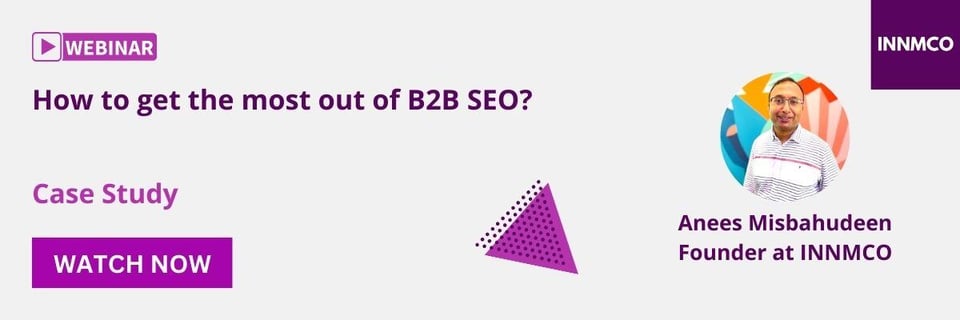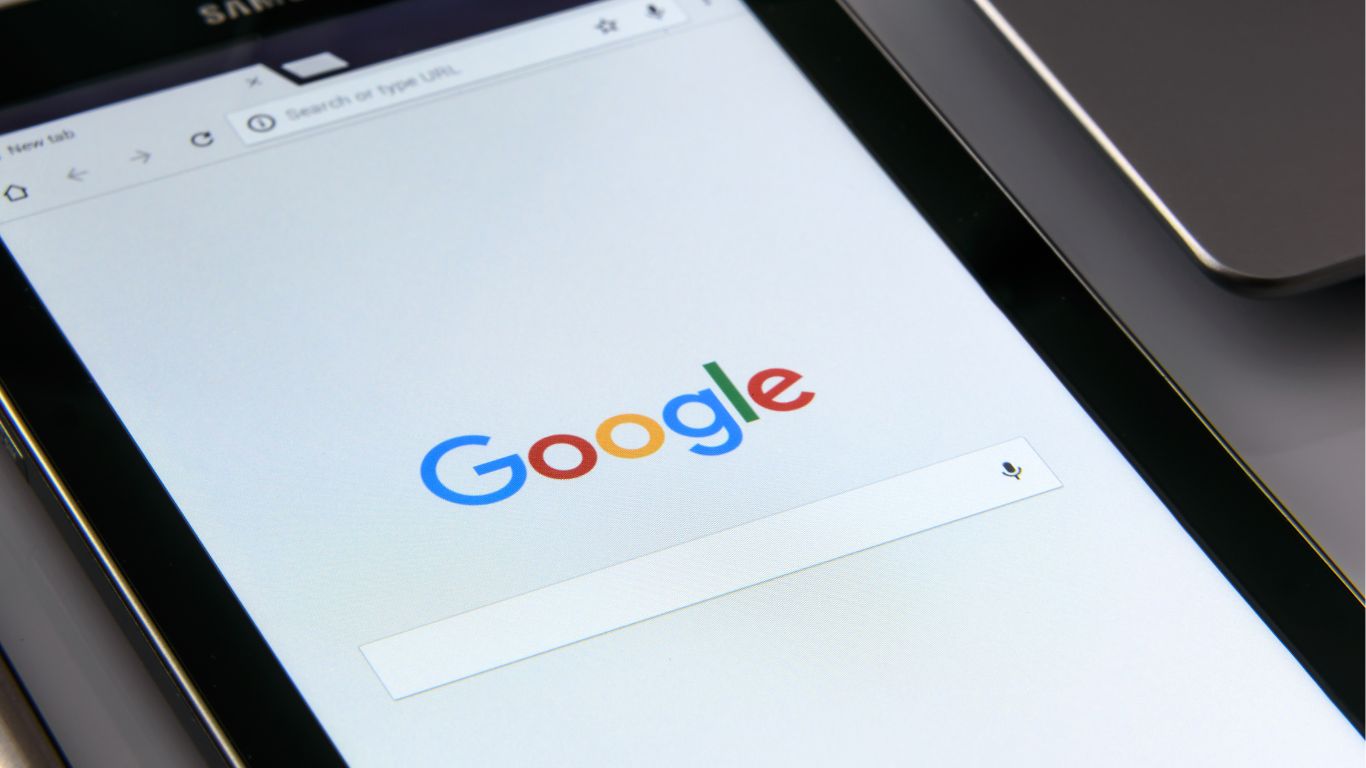Updated on: September 03, 2025
What is SEO and SEM?
I want to share with you a question that I often get asked — When to use Search Engine Optimisation (SEO) and Google Ads?
If you are business owner or marketer thinking about which approach to take? You are not alone!
But, before we get to answering this question, let’s get some definitions out of the way.
Search Engine Marketing (SEM) includes both SEO and Google Ads.
Search Engine Marketing (SEM) is sometimes used in conversations, in reference to Google Ads.
In this blog, we will stick to the terms SEO and Google Ads.
SEO
What is SEO?
Search engine optimisation (SEO) focuses on generating organic traffic from search.
Search engine optimisation (SEO) focuses on optimising your web pages to rank higher in organic search results. SEO includes 4 key activities:
- Keyword research
- On-page SEO
- Technical SEO
- Off-page SEO
Let’s now switch our focus to the pros, cons of using SEO and when to use them.
Pros of SEO
Once SEO starts delivering results, you get consistent organic search traffic to your website. Your target buyer will click on your web page or blog post, as long as you have quality content that addresses their needs.
The cost associated with doing SEO is lesser in comparison to Google Ads. Let’s say 2000 keywords gave you a traffic of 9000 visits per month. If you were to use paid search campaigns to get all that traffic. You could end up paying $31,500 per month or $378,000 per year to get that traffic. Your SEO and content team expenses will be lesser than this.
You end up having a user friendly site with SEO. You are consistently optimising your website for your target buyer. Your target buyer will take an action that you want them to take (e.g. download a checklist or schedule a digital marketing discovery call).
Cons of SEO
SEO takes time to deliver results. SEO includes many activities like keyword research, on-page SEO, technical SEO and off-page SEO. All these activities take time to deliver results. You also have to create informative content to address buyer needs at different stages of the buyer’s journey and marketing funnel.
SEO requires ongoing optimisations. This is because you may require content updates and google may update its algorithms. This requires ongoing optimisations to your website pages and blog posts.
SEO requires quality content. Your content needs to adhere to the EEAT (experience, expertise, authoritativeness and trustworthiness) concept. This means you will have to spend time and money to create quality content that adheres to EEAT. This can be a problem, if you have limited resources in your business.
When to use SEO?
Use SEO if you want to build a consistent flow of web traffic. SEO is a long term strategy. Once you keywords start getting ranked and your web pages get to the top of search results, you will get a consistent flow of web traffic. If you continue doing SEO for your website, you will stay at the top of search results and will get consistent organic traffic to your website.
Use SEO if you want to build an authoritative website. An authoritative website is where your target buyers will go when they need information on a particular topic. You can position your business as an expert for a particular topic. If you are looking to position your business top of mind with prospective buyers, check out our SEO, Google Ads and on-demand content writing services and book a discovery call. Our clients have seen a 600% increase in leads in the first 6 months.
Google Ads
What is Google Ads?
Google Ads is Google’s Advertising platform. It helps you to drive web traffic, leads and sales for your business. Google Ads enables you to get your business in front of prospective buyers via paid ads.
There are many types of Google Ads such as Search Ads, Display Ads, Shopping Ads, Video Ads, App Ads, Discovery Ads, Local Service Ads and Performance Max Ads.
Google Search Ads is the most commonly used Google Ad. Google Search ads enables you (advertisers) to display your website or landing page at the top of search results.
While creating Google Search Ads, advertisers pay search engines like Google for placing ads on search engine results pages (SERPs).
Google ads uses the pay per click (PPC) advertising model. In the pay per click advertising model, advertisers only pay google when someone clicks on the Ad. You don’t pay for search impressions, which is the number of times google shows your web page or blog post in google search results.
Now that we have got the definitions out of the way. Let’s now switch our focus to the pros, cons of using Google Ads and when to use them.
Pros of Google Ads
Google Ads delivers immediate results. It is faster to set up a paid search campaign. You can create an account in a platform like google ads and start running a paid search campaign.
Google Search Ads allows you to quickly experiment. You can set up a Google Search Ads campaign. You can run A/B tests and see if something is working or not. In contrast, SEO takes time to give you results. It can also be hard to attribute specific SEO outcomes to specific SEO activities that you completed.
Google Search Ads gives you high visibility in search engine result pages. Your ad will be displayed higher in search results (i.e. above organic search results), if you choose the right keywords and your ad has a good quality score. This gives your website high visibility while your target buyers are searching for products or services that are similar to yours.
Cons of Google Ads
Google Ads can be quite expensive in the long run. If you are a business in an industry that has high cost per click (CPC) for keywords, this can become quite expensive very quickly. You will stop seeing results, as soon as you switch off your paid search campaigns. In contrast, SEO will continue to generate organic web traffic and leads.
Google Search Ads listings are prefixed with the words ‘Sponsored’. This may deter some buyers from clicking on them as they don’t trust your business. This might be the first time, they are seeing an ad from your business.
Google Search Ads also comes with a huge learning curve as platforms like google ads are some what complex. It might take a few attempts to create a paid search campaign that generates results for your business.
When to use Google Ads?
Use Google Ads if you want immediate results. Your Google Search ad is immediately shown to your target buyers, once you setup a Google search ad campaign and your ad is approved by google ads. Google Search Ads are good for product launches, time sensitive offers and event promotions.
Use Google Search Ads if you want to lead search results for keywords that are specific to your product or service category. The first few search results get most of the website clicks. If you want to grab your share of website clicks, then use Google Search Ads.
My Take on SEO or Google Ads
SEO and Google Ads are digital marketing tactics that businesses needs to consider in their digital marketing strategy.
Deciding between the two is dependent on your product, your industry, your marketing goals, your target audience and your budget.
If you have a time sensitive offer, you could use Google Ads to put your product in front of the right audience. Example: Boxing day sale.
If you have a seasonal product, you could use Google Ads to get in front of the right audience. Example Red roses on Valentine’s day.
SEO is a cost effective option, if you have a long term strategy for marketing. It helps you to build an authoritative website. You can position your business as an expert on a set of topics. This will enable you to generate organic traffic without having to spend money on paid ads.
Google Ads cost vary by industry, location and competition. If you are in a highly competitive industry, you could use both approaches to get website traffic for your business. This could keep a check on your digital marketing costs, while addressing your need to get immediate results and build an authoritative website that generates organic traffic for your business.
If you are looking to create content that ranks, check out our SEO, Google Ads and on-demand content writing services and book a discovery call. Our clients have seen a 600% increase in leads in the first 6 months.
Watch on-demand webinar - How to get the most out of B2B SEO?
If you want a tailored plan for your SaaS company (with budgets, timelines and channel mix).
INNMCO can help you set up the operating system for growth: SEO foundations + Google Ads performance layer + content that converts.
Book Your Free SEO & Google Ads Audit!
Our clients have seen a 600% increase in leads in the first 6 months. Schedule a strategy call with Anees!
Written by
Anees Misbahudeen
Founder and Chief Growth Strategist | INNMCO
.png?width=200&height=125&name=Anees%20Misbahudeen%20-%20Company%20Profile%20(700%20%C3%97%20436%20px).png)
Anees is the Founder and Chief Growth Strategist at INNMCO. INNMCO is a Sydney‑based SEO, Google Ads and content marketing agency focused on driving growth for SaaS companies. Anees works with SaaS teams to improve visibility where it matters. This includes ranking at the top of search results and being referenced in AI‑driven answers. With over a decade of experience, he has supported 30+ brands across SaaS, finance, automotive and startups, delivering measurable growth.
Share
.png?width=75&height=75&name=INNMCO%20Company%20Logo%20-%202025%20(700%20x%20700%20px).png)

.png)


